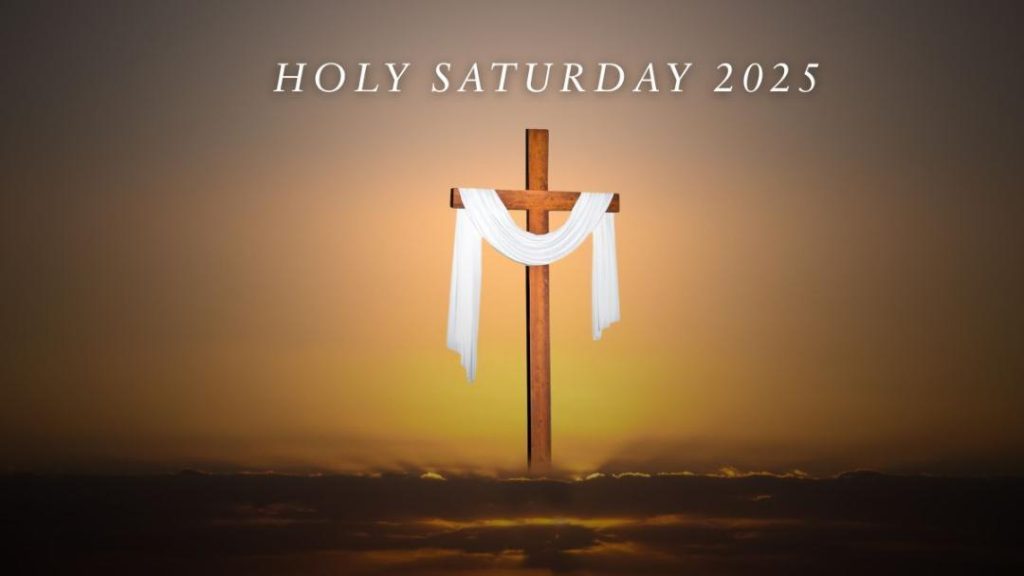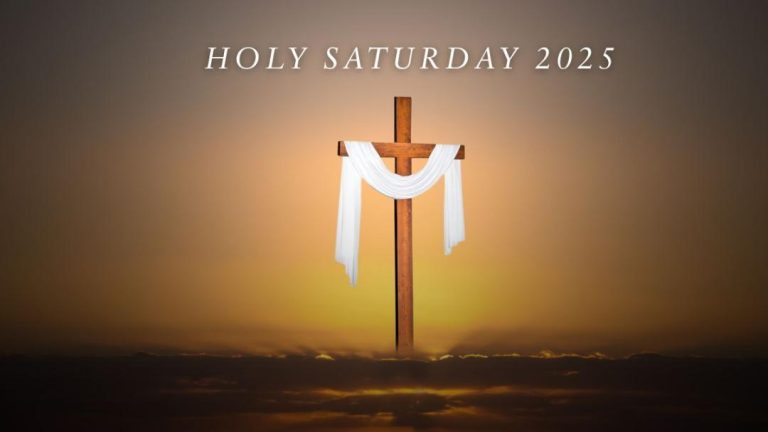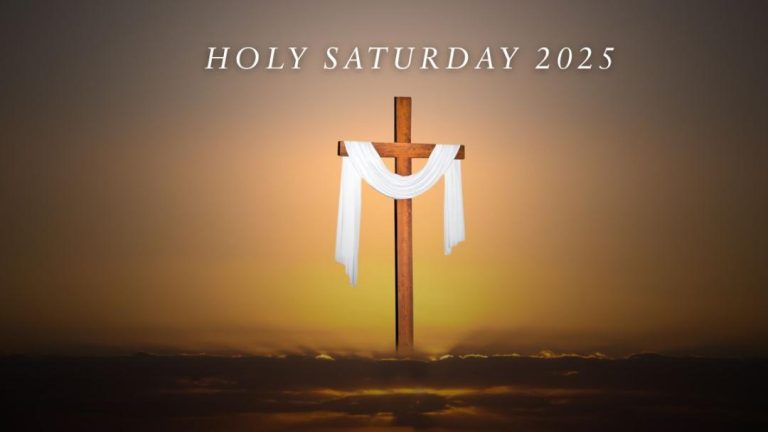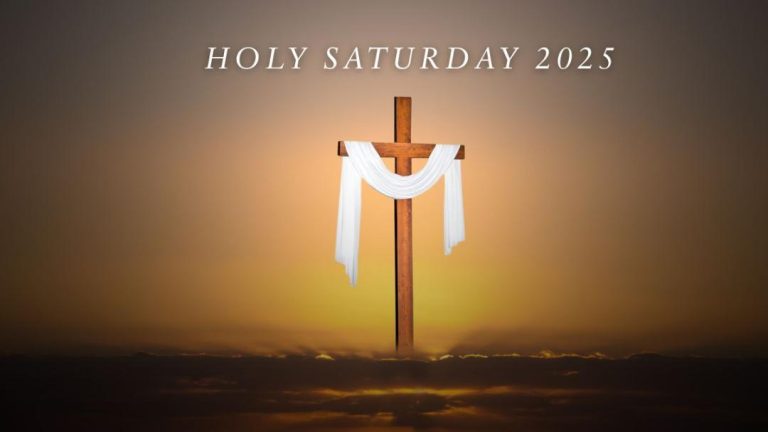
What is Holy Saturday & why is it celebrated?
The Easter season is a time of great significance for Christians around the world. It marks the resurrection of Jesus Christ, which is seen as a symbol of hope, renewal, and eternal life. However, before the grand celebration of Easter Sunday, there is a day of quiet contemplation and anticipation – Holy Saturday. Observed between Good Friday and Easter Sunday, Holy Saturday holds a special place in the Christian calendar, and this year, it will be observed on April 19, 2025, followed by Easter Sunday on April 20.
What is Holy Saturday?
Holy Saturday, also known as Easter Eve, is the day that Jesus Christ lay in the tomb after his crucifixion. It is a day of silence, reflection, and anticipation, marking the period between Christ’s death and his resurrection. According to the Christian narrative, after Jesus was crucified on Good Friday, his body was placed in a tomb, and a large stone was rolled in front of the entrance to seal it. The Bible says that a group of women, including Mary Magdalene, Mary the mother of James, and Salome, came to the tomb early on Sunday morning to anoint Jesus’ body with spices and ointments. However, they found the tomb empty, and an angel informed them that Jesus had risen from the dead.
Why is Holy Saturday celebrated?
Holy Saturday is celebrated to mark the period of time between Christ’s death and resurrection. It is a day of contemplation and reflection, during which Christians remember the sacrifice made by Jesus on the cross and await his glorious resurrection. The day is also a reminder of the significance of Christ’s death and the hope of eternal life that it brings.
In many Christian traditions, Holy Saturday is a day of fasting and abstinence from meat. This is seen as a way to imitate Christ’s sacrifice and to prepare for the joy and celebration of Easter Sunday. The day is also marked by special prayers, hymns, and readings that focus on the themes of death, resurrection, and new life.
History of Holy Saturday
The celebration of Holy Saturday has its roots in early Christian traditions. In the early Christian Church, the day was known as “the Great Sabbath” or “the Sabbath of the Lord.” It was a day of rest and contemplation, during which Christians would gather for prayer and reflection.
In the Middle Ages, the celebration of Holy Saturday became more widespread, and it was often marked by processions, hymns, and special liturgies. The day was also seen as a time of preparation for Easter, and many Christians would engage in acts of penance and self-mortification to prepare for the celebration of Christ’s resurrection.
Significance of Holy Saturday
Holy Saturday holds great significance in the Christian calendar because it marks the climax of Christ’s sacrifice and the anticipation of his resurrection. It is a day of profound symbolism, during which Christians remember the suffering and death of Jesus and await his glorious return to life.
The day is also a reminder of the power of God’s love and the hope of eternal life that it brings. As Christians prepare to celebrate the resurrection of Christ on Easter Sunday, Holy Saturday serves as a reminder of the depth of God’s love for humanity and the lengths to which he was willing to go to redeem us.
Conclusion
Holy Saturday is a day of quiet contemplation and anticipation, marking the period between Christ’s death and resurrection. It is a day of great significance in the Christian calendar, and this year, it will be observed on April 19, 2025, followed by Easter Sunday on April 20. As Christians prepare to celebrate the resurrection of Christ, Holy Saturday serves as a reminder of the power of God’s love and the hope of eternal life that it brings.





